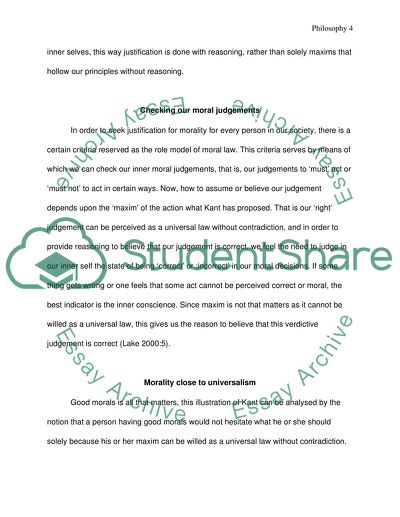Cite this document
(“Kants philosophy of universalisation Essay Example | Topics and Well Written Essays - 2000 words”, n.d.)
Retrieved from https://studentshare.org/philosophy/1521589-kants-philosophy-of-universalisation
Retrieved from https://studentshare.org/philosophy/1521589-kants-philosophy-of-universalisation
(Kants Philosophy of Universalisation Essay Example | Topics and Well Written Essays - 2000 Words)
https://studentshare.org/philosophy/1521589-kants-philosophy-of-universalisation.
https://studentshare.org/philosophy/1521589-kants-philosophy-of-universalisation.
“Kants Philosophy of Universalisation Essay Example | Topics and Well Written Essays - 2000 Words”, n.d. https://studentshare.org/philosophy/1521589-kants-philosophy-of-universalisation.


